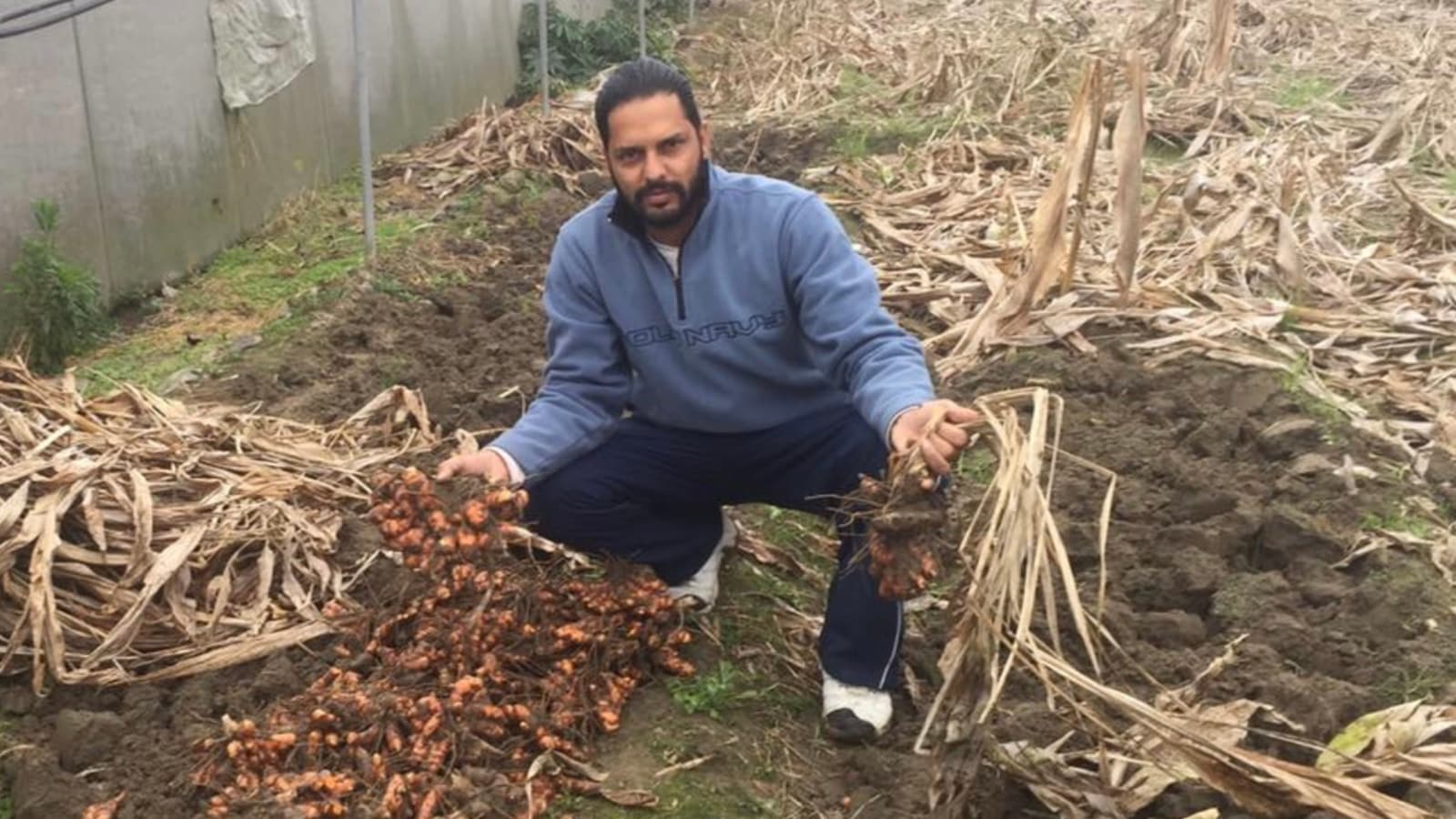Seeds of Change: How Punjab farmers are cultivating a network for zero budget natural farming
A group of farmers led by Narinder Singh, a 48-year-old from village Ajjowal of Hoshiarpur with an MSc in IT, quietly defied conventional practices.
 Narinder Singh started practising near-zero-budget natural farming in 2011. Express
Narinder Singh started practising near-zero-budget natural farming in 2011. Express
In 2020, when the the Centre introduced the concept of Zero Budget Natural Farming (ZBNF) in the Union Budget to reduce farming input costs and free farmers from debt cycles, many Punjab farmers were skeptical. Used to high-input farming methods, they found it hard to believe that crops could thrive without fertilizers and pesticides. For most, ZBNF seemed like an unrealistic promise.
However, a group of farmers led by Narinder Singh, a 48-year-old from village Ajjowal of Hoshiarpur with an MSc in IT, had quietly defied conventional practices. Narinder, who owns 7 acres, and his group started practicing near-zero-budget natural farming in 2011, well before the government’s policy shift. Rather than relying on costly inputs, they embraced natural and sustainable practices.
Over the years, Narinder and his small group of about 15 like-minded farmers organised workshops and farm visits, sharing insights on how to make use of on-farm resources. Their efforts have paid off, and today, nearly 75 farmers in the region are following similar practices on over a 100 acres and making a chain of such farmers.
“Our toolkit included desi rudi (traditional homemade compost), vermicompost, and farm waste residue as fertilizers. For pest control, we relied on knowledge rather than chemicals. We understood that pests have life cycles and that insects are part of a balanced ecosystem. There are both herbivorous and carnivorous insects, and they depend on each other, so it’s important not to kill indiscriminately,”
Narinder says, adding that manual labour is crucial in natural farming, as they manage weeds by hand rather than using chemical sprays.
“Of the 75 farmers, around 15 are growing products for commercial purposes, cultivating everything organically and naturally—wheat, basmati, maize, vegetables, pulses, and sugarcane. They handle processing and self-marketing as well. We are making flour, jaggery, extracting oil and several other products. I do the same at my Golden Natural Farm, and by following this approach, we earn at least one lakh per acre after covering expenses,” said Narinder. He, along with other farmers, founded the Innovative Farmers’ Association (IFA), Hoshiarpur, where he now serves as president. Narinder is also a member of the Natural Farmers’ Association Punjab and the PAU Organic Farmers’ Club.
Narinder recalls his early struggles convincing other farmers that natural farming could be viable, but now they regularly organise free camps with the PAU Organic Club to teach natural farming techniques in different villages. “People thought we were risking our livelihoods,” he says. “But I believed natural farming could be profitable and sustainable if we managed production, pricing, and marketing ourselves.”
All of them obtain certification for their organic and natural products from Punjab Agri Export Corporation Limited (PAGREXCO), a state government undertaking that promotes organic farming in Punjab. PAGREXCO actively implements the Organic Programme and offers institutional support to organic farmers through various government schemes.
Narinder explains that in organic farming, the focus is on quality rather than quantity (yield), we do not grow hybrid seeds, which are high in yield, as consumers are willing to pay more for purity and quality. “We prepare everything ourselves at the farm, including seeds and manure, and we don’t use bio-fertilizers available in the market,” he says, adding that farmers can earn at least 20% more for their natural agricultural products, and for some items, even double the price compared to those produced with chemical farming methods.
These farmers have also set up a Kisan Haat at Kheti Bhawan, Hoshiarpur, on land provided by the Punjab government, where they sell all their seasonal produce. Narinder was recognized for his natural farming efforts by PAU in 2016.
“In natural farming, inputs are minimized—often, seeds are the only real cost. With input expenses drastically reduced, these farmers avoid the debt burden common in high-cost farming. Today, they earn a steady income without the financial strain of purchasing fertilizers or pesticides, supporting a sustainable agricultural model in Punjab that could inspire future generations,” said Simranjit Singh, Agricultural Development Officer, Hoshiarpur.
Our aim is to make every farmer aware of natural farming, to make our earth poison-free, protect our environment, and provide healthy food to people and focuses that people must visit such organic and natural farms once before becoming the customers of such products to have the confidence of the purity first,” Narinder says, adding that pure and healthy food is the foundation of a healthy nation.”







